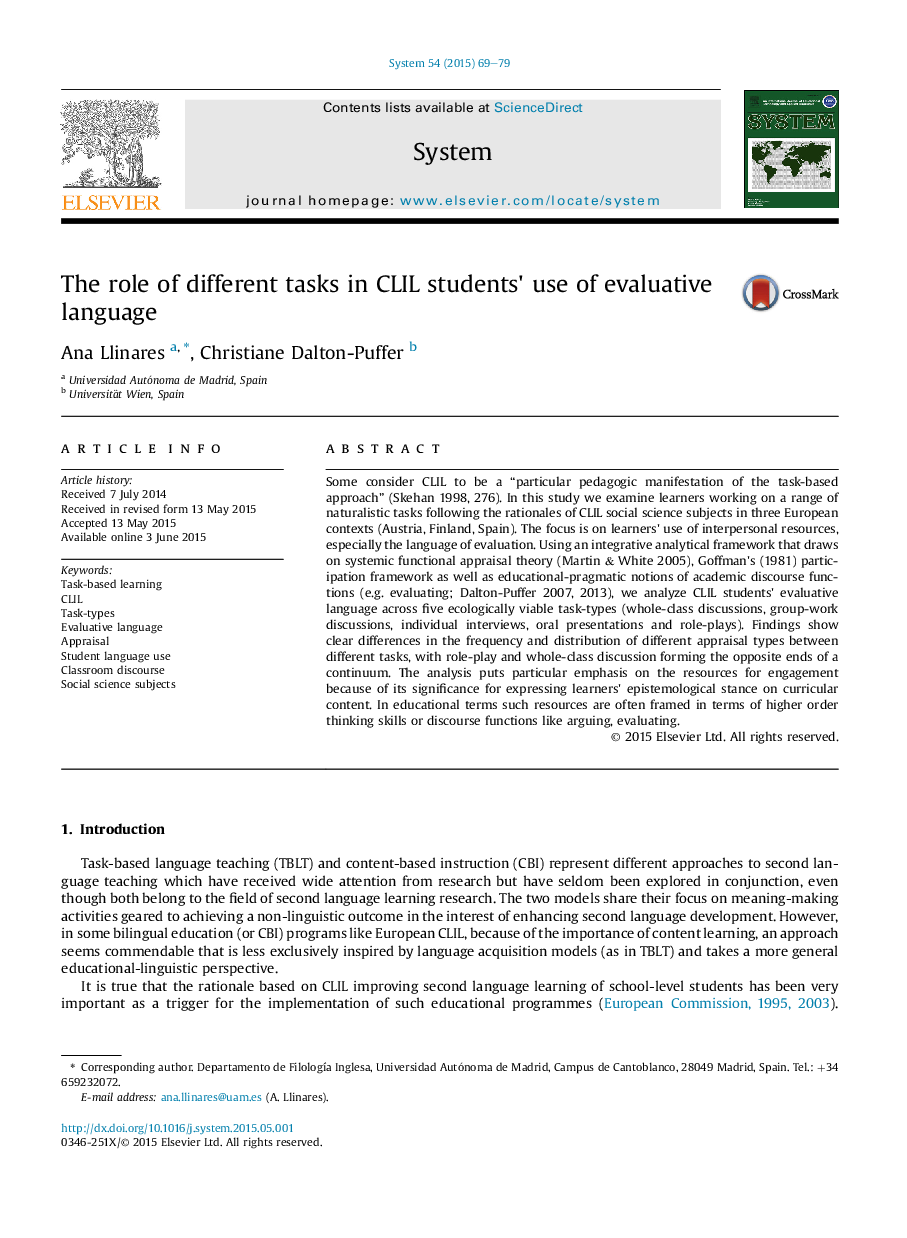| Article ID | Journal | Published Year | Pages | File Type |
|---|---|---|---|---|
| 372928 | System | 2015 | 11 Pages |
Some consider CLIL to be a “particular pedagogic manifestation of the task-based approach” (Skehan 1998, 276). In this study we examine learners working on a range of naturalistic tasks following the rationales of CLIL social science subjects in three European contexts (Austria, Finland, Spain). The focus is on learners' use of interpersonal resources, especially the language of evaluation. Using an integrative analytical framework that draws on systemic functional appraisal theory (Martin & White 2005), Goffman's (1981) participation framework as well as educational-pragmatic notions of academic discourse functions (e.g. evaluating; Dalton-Puffer 2007, 2013), we analyze CLIL students' evaluative language across five ecologically viable task-types (whole-class discussions, group-work discussions, individual interviews, oral presentations and role-plays). Findings show clear differences in the frequency and distribution of different appraisal types between different tasks, with role-play and whole-class discussion forming the opposite ends of a continuum. The analysis puts particular emphasis on the resources for engagement because of its significance for expressing learners' epistemological stance on curricular content. In educational terms such resources are often framed in terms of higher order thinking skills or discourse functions like arguing, evaluating.
